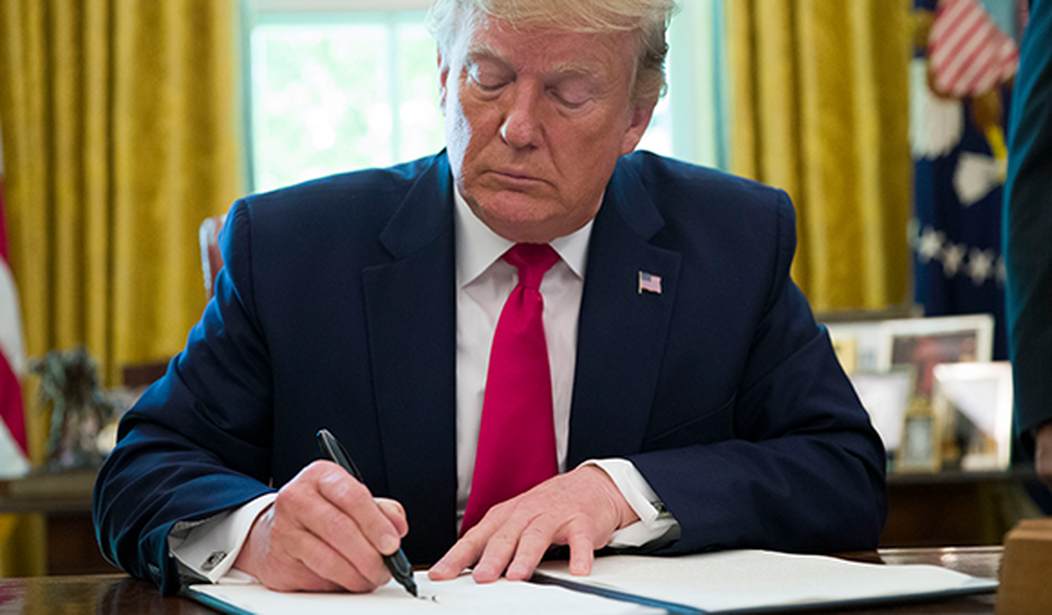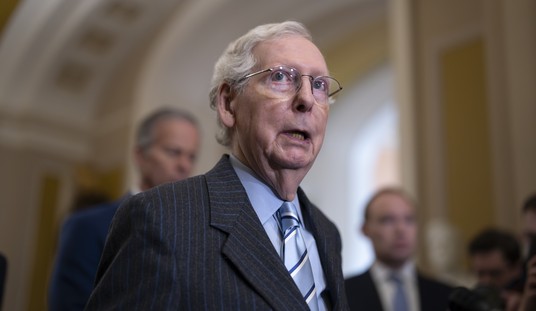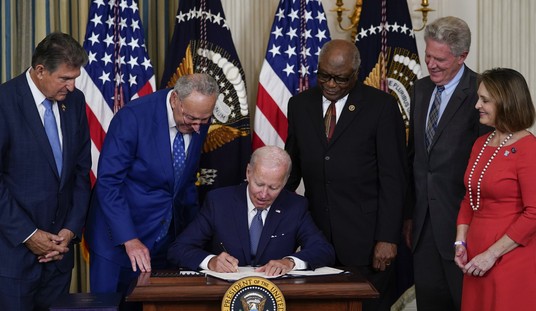Of the numerous reasons Trump haters offer for their hatred of the President, the criticism over his withdrawal of the Iran deal is among the most difficult to follow. That these critics blame Donald Trump for Iran's recent aggressive behavior is even more bizarre.
Iran attacks oil tankers and bombs Saudi Arabian oil facilities and Trump becomes the villain?
When Trump withdrew from the Iran deal last year, The New York Times editorialized: "When it comes to the danger of a nuclear arms race in the Middle East, there is no sign Iran or any of the other major powers in the existing and so far successful pact will simply fall in line with Mr. Trump's notional new plan. More likely, his decision ... will allow Iran to resume a robust nuclear program, sour relations with close European allies, erode America's credibility, lay conditions for a possible wider war in the Middle East and make it harder to reach a sound agreement with North Korea on its nuclear weapons program."
The Times, in other words, said that after America's exit from the Iran deal, Iran would continue to engage in the very terrorism it engaged in before the deal. President Barack Obama's first secretary of defense, Robert Gates, described the deal as based on a "hope" that Gates considered "very unrealistic." After he left the Obama administration, Gates said: "The pursuit of the agreement is based on the President's hope that over a 10-year period with the sanctions being lifted ... the Iranians will become a constructive stakeholder. ... That as their economy begins to grow again ... they will abandon their ideology, their theology, their revolutionary principles, their meddling in various parts of the region. And frankly, I believe that's very unrealistic."
Recommended
Before America withdrew from the deal, Israel Prime Minister Benjamin Netanyahu accused Iran of violating it. In a televised presentation clearly timed to influence Trump's eventual withdrawal, Netanyahu said: "Iran lied about never having a nuclear weapons program. One hundred thousand secret files prove it did. Second, even after the deal, Iran continued to preserve and expand its nuclear weapons knowledge for future use." In 2015, the International Atomic Energy Agency, the U.N.'s nuclear monitoring center, issued a report called the "Final Assessment on Past and Present Outstanding Issues regarding Iran's Nuclear Programme." It concluded that "some activities took place after 2003" but "these activities did not advance beyond feasibility and scientific studies." It found "no credible indications of activities" after 2009. The IAEA did not respond directly to Netanyahu's presentation but issued a statement referring to its 2015 report.
The Trump administration objected to and withdrew from the deal on several grounds. The agreement did not cover Iran's exportation of terror through, for example, Hezbollah -- the terror organization that Iran founded and continues to fund. Nor does the deal cover Iran's missile program. Most troubling to the Trump White House is that the deal did not permit no-notice, no-knock inspections. It gave Iran 24 days to permit inspections from the time a request is made by the IAEA. About this compliance time period, the liberal, pro-deal Brookings Institution conceded: "The critics are right that removal and cleanup efforts could be successfully completed within 24 days in the case of small-scale illicit activities, especially if no nuclear materials are involved. Moreover, although intelligence assets have in the past detected efforts to sanitize sites -- notably at Iran's Parchin facility -- detection of such efforts cannot be counted on in all instances."
Most Americans also believe Iran is cheating. A May 2018 CNN poll found that while 63% opposed withdrawing from the deal, nearly the same percentage (62%) said Iran is violating it. Iran admits it is now in violation of the uranium enrichment restrictions set forth in the deal. Iran warns of further violations if the country does not get sanctions relief.
Trump's critics ignore or have forgotten that the architect of the deal, deputy national security adviser Ben Rhodes, all but admitted that he sold the deal to the public by pushing a fake narrative. The administration argued that Iran's moderate ayatollahs were challenging the hardliners and that the deal would strengthen the hand of the former. But The New York Times, in a 2016 piece on Rhodes and the making of the Iran deal, wrote that this narrative was largely manufactured: "The story of the Iran deal ... was largely manufactured for the purpose for selling the deal. Even where the particulars of that story are true, the implications that readers and viewers are encouraged to take away from those particulars are often misleading or false. ... (This was) the narrative that Rhodes shaped."
Before he criticized Trump's withdrawal from the deal, ranking Senate Democrat Chuck Schumer opposed the deal. In 2015, Schumer said, "I believe Iran will not change, and under this agreement it will be able to achieve its dual goals of eliminating sanctions while ultimately retaining its nuclear and non-nuclear power."
Trump agrees with Schumer -- the 2015 edition.
Larry Elder is a bestselling author and nationally syndicated radio talk show host. To find out more about Larry Elder, or become an "Elderado," visit www.LarryElder.com. Follow Larry on Twitter @LarryElder. To read features by other Creators Syndicate writers and cartoonists, visit the Creators Syndicate website at www.creators.com.
























Join the conversation as a VIP Member